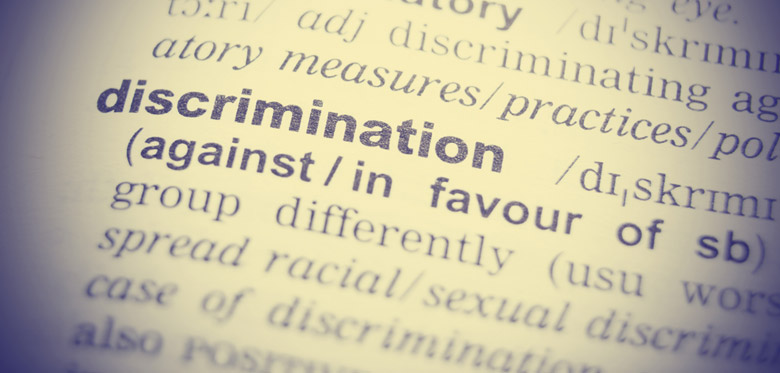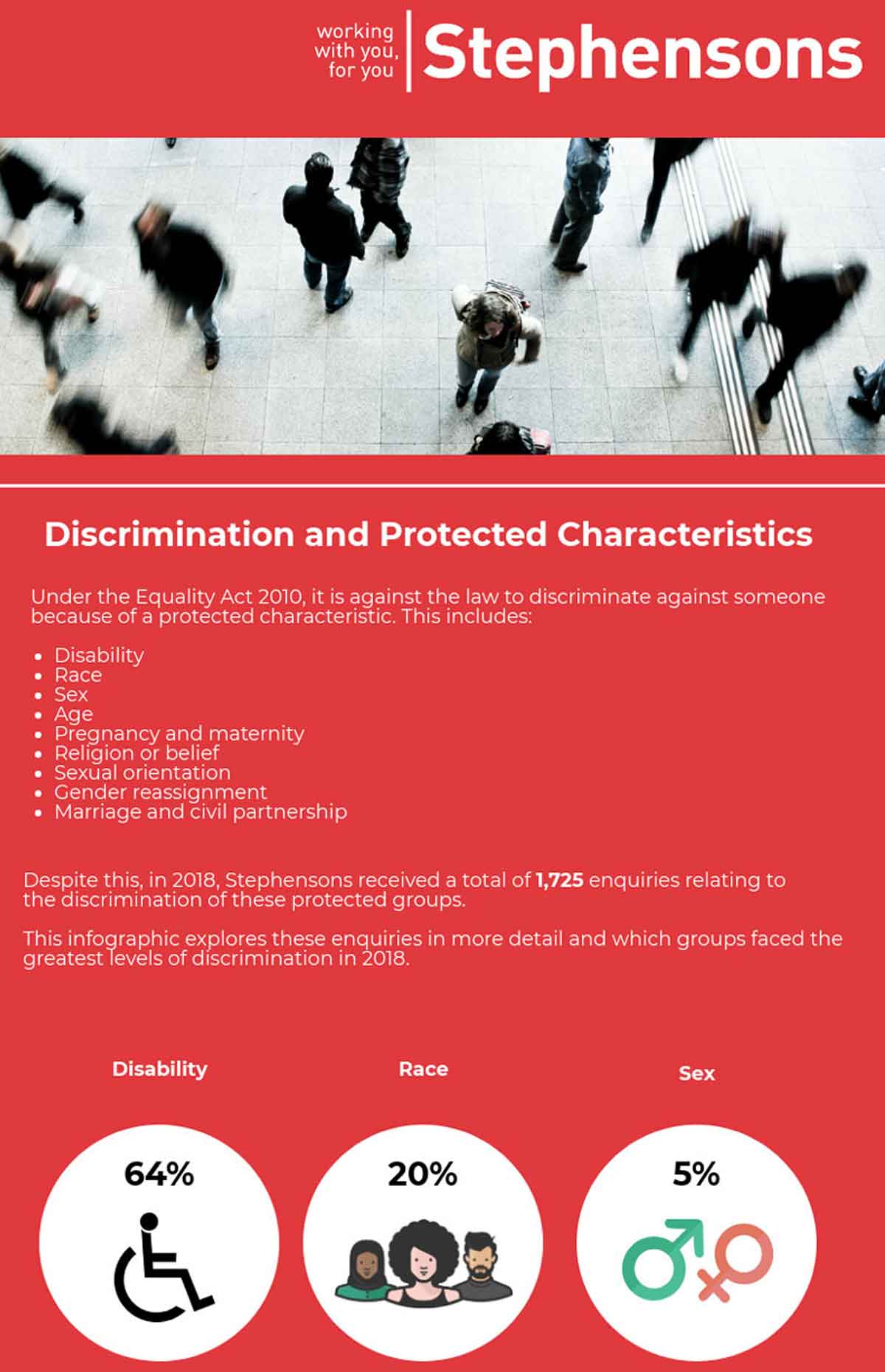People with disabilities continue to overwhelmingly claim to be the main victims of discrimination under the Equality Act, according to new figures released by national law firm Stephensons.
Out of the 1,725 cases the law firm dealt with under the act during 2018, almost two-thirds (1,100 or 64 per cent) involved proposed claims of disability discrimination – much more than involving any of the other protected characteristics under the Act. Most alleged offenders were public bodies.
Disability campaigners have backed a call by the law firm for compulsory training to be introduced for employees in public sector bodies to raise awareness of their obligations under the act, backed by financial penalties.
|
| View infographic |
Maria Chadwick, senior associate solicitor at Stephensons, said: “Nine years after the introduction of the act, it is clear that too many public bodies are still failing in their legal obligations to treat people equally. Disabled people continue to feel the brunt of that.
“All public sector bodies could be doing more across the board to address this. There is a real lack of awareness of their obligations under the Equality Act.
“There needs to be more emphasis on training for employees around awareness of the act. The most effective way to make that happen is by the serious consideration of enforcing the obligations of organisations with financial penalties.
“Unless action is taken, I fear we will continue to see the Equality Act being flouted.”
James Taylor, Head of Policy and Public Affairs at disability equality charity, Scope, said: “These findings are extremely disheartening.
“Despite the Equality Act being in place for almost a decade it’s clear there is still a way to go for organisations to understand their legal duties.
“Making reasonable adjustments for a more inclusive workplace is not rocket science; it can cost little to employers but can make the world of difference to disabled people.
“We need to see a vast improvement in workplace policies, practice and culture so that disabled employees can finally be treated equally.
“Scope is determined to tackle the barriers disabled people face in entering, staying in and progressing in work with our partnership with Virgin Media, where we are calling on other businesses to join our Work With Me campaign.”
The Equality Act requires equal treatment in access to employment as well as private and public services, in respect of nine Protected Characteristics - age, disability, gender reassignment, marriage and civil partnership, race, religion or belief, sex and sexual orientation.
The types of discrimination cases under the act that Stephensons dealt with in 2018 broke down as follows:
| Protected characteristic | % of enquiries |
|---|---|
| Disability | 63.77% (1100) |
| Race | 19.71% (340) |
| Religion/belief | 1.62% (28) |
| Sexual orientation | 1.33% (23) |
| Pregnancy and maternity | 2.43% (42) |
| Age | 4.99% (86) |
| Gender reassignment | 0.70% (12) |
| Marriage and civil partnership | 0.12% (2) |
| Sex/gender | 5.33% (92) |
Among the most common types of claims were:
- universities, further education providers and colleges accused of failing to make reasonable adjustments to accommodate disabled students’ study and learning plans
- housing associations and local councils said not to have met the housing needs of disabled tenants
- Government departments undertaking public functions applying strict and inflexible policies causing detriment to those holding protected characteristics.



